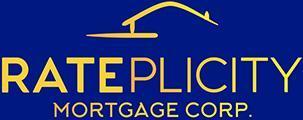FHA Loans
The FHA loan is a mortgage that’s insured by the Federal Housing Administration (FHA). This loan is popular with first time home buyers because they allow smaller down payments of 3.5% for credit scores of 580+. FHA loans make homeownership possible for many people because of the low down payment and credit score requirements. For buyers that may not meet the stricter criteria of a conventional loan, an FHA loan allows them access to financing that is backed by the government. A lender will approve an FHA loan based on creditworthiness and your financial situation. To qualify, there are some very specific requirements, so be sure to read below if you are interested in this type of loan.
Overview
The FHA program was created in response to the rash of foreclosures and defaults that happened in the 1930s. It aimed to provide mortgage lenders with adequate insurance and helped stimulate the housing market by making loans accessible and affordable for people with less than stellar credit or a low down payment. Essentially, the federal government insures loans for FHA-approved lenders in order to reduce their risk of loss if a borrower defaults on their mortgage payments.
FHA borrowers must pay mortgage insurance premiums, which protects the lender if a borrower defaults.
FHA Requirements
- Borrowers must have a steady two year employment history.
- Borrowers must have a valid Social Security number, lawful residency in the U.S. and be of legal age to sign a mortgage in your state.
- Borrowers must pay a minimum down payment of 3.5 percent, but money can be gifted by a family member.
- New FHA loans are only available for primary residence occupancy.
- Borrowers’ front-end ratio (mortgage payment plus HOA fees, property taxes, mortgage insurance, homeowners insurance needs to be less than 31 percent of their gross income unless a special exemption is granted.
- Borrowers’ back-end ratio (mortgage plus all your monthly debt, i.e., credit card payment, car payment, student loans, etc.) needs to be less than 43 percent of their gross income. Again, an exemption can be granted in certain cases.
- Borrowers must meet certain credit score requirements.
FHA Loan FAQs
What are the credit requirements of an FHA Loan?
Borrowers must have a minimum credit score of 580 for maximum financing with a minimum down payment of 3.5 percent. Borrowers must have a minimum credit score of 500-579 for maximum LTV of 90 percent with a minimum down payment of 10 percent. FHA-qualified lenders will use a case-by-case basis to determine an applicant’s credit worthiness.
Can you still get an FHA Loan if you previously filed for bankruptcy or experienced foreclosure?
Typically borrowers must be two years out of bankruptcy and have re-established good credit. Exceptions can be made if you are out of bankruptcy for more than one year if there were extenuating circumstances beyond your control that caused the bankruptcy and you’ve managed your money in a responsible manner.
Typically borrowers must be three years out of foreclosure and have re-established good credit. Exceptions can be made if there were extenuating circumstances and you’ve improved your credit. If you were unable to sell your home because you had to move to a new area, this does not qualify as an exception to the three-year foreclosure guideline.
What would cause a house to fail an FHA inspection?
Before getting approved for an FHA loan, borrowers must have a property appraisal from a FHA-approved appraiser. The property must meet certain minimum standards at appraisal. House issues that can affect security, safety, or general soundness of the property may cause an appraiser to block the approval. For example, a broken window might fail an FHA inspection. If the home you are purchasing does not meet standards and a seller will not agree to the required repairs, your only option is to pay for the required repairs at closing (to be held in escrow until the repairs are complete).
What is the biggest advantage of an FHA loan?
The most appealing part of an FHA loan is the lower down payment requirements. If a buyer does not have a large amount saved for a down payment, FHA loans can make a home purchase accessible to them.
FHA loans also don’t have as high credit requirements but can result in higher interest rates and mortgage insurance premiums.
